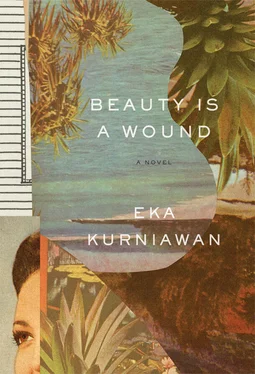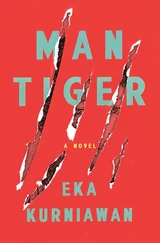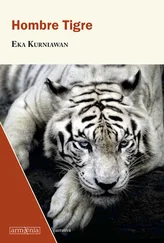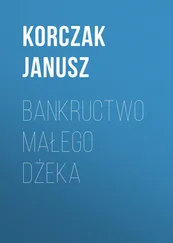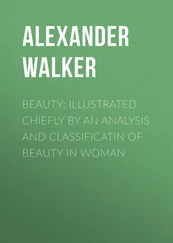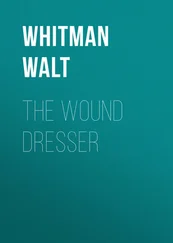
COMRADE KLIWON CARRIED his cup of coffee to the veranda and sat waiting for his newspapers to arrive. The day before Shodancho tried to kill him, he had moved from the hut that also served as the headquarters for the Fishermen’s Union to the Communist Party headquarters at the end of Jalan Belanda. Shodancho found nobody in the abandoned hut, so he went on a rampage, shooting at the hut before setting it on fire. Finally, exhausted and crying, he fell face-first onto the sand, and lay there until some passersby found him, unconscious. Part of Comrade Kliwon’s good fortune: after years of dedicating himself to the Party, he had been named the leader of Halimunda’s Communist Party.
It was the first of October, and he was feeling uneasy because his newspapers hadn’t been delivered. Trembling with impatience, he picked up the previous day’s newspapers and started to read the advertisements, because he’d already read everything else. There was nothing of interest, except two ads — one for a mustache growing tonic, and the other one for purchasing German cars on credit. He threw the newspapers under the table and drank a little coffee. He looked out at the street, hoping the newspaper boy would appear on his bike, but instead a young woman came down the street. It was Adinda.
“How are you, Comrade?” she asked.
“Terrible. My newspapers aren’t here yet.”
The girl wrinkled her forehead. “Haven’t you heard about the bloody events in Jakarta?”
“How could I, without my newspapers?”
Adinda sat down next to Comrade Kliwon, and without asking first drank a little bit of his coffee, and said, “The radio is only talking about the Communist Party, saying they staged a coup and killed some generals.”
“Well I’ll find out about it when my newspapers come.”
People started showing up, young and old, cadre and veteran, many of them the most important figures in the Party. Comrade Yono, who had been number one in the Party before Comrade Kliwon, appeared first, followed by Karmin and the others. They all reported the same thing: bloody things were happening in Jakarta.
“It looks like it’s going to get really bad,” said Karmin.
“You’re right,” replied Comrade Kliwon. “We have paid up all our subscriptions in full, and those newspapers still haven’t arrived. I should box that newspaper boy’s ears.”
“What’s wrong with you, Comrade?” asked Comrade Yono. “Are newspapers really all you can think about?”
Comrade Kliwon returned his glance crankily: “Those newspapers have never not arrived — and now what?”
“Listen to me, Comrade,” said Adinda. “No newspapers have even been published today.”
“Why not? Today’s not Eid, it’s not Christmas, and it’s not New Year’s Day.”
“The army is occupying all the newsrooms,” Karmin said. “So I’m sorry, Comrade, but today we won’t be reading any newspapers.”
“That’s worse than a coup d’état,” complained Comrade Kliwon, and drank the rest of his coffee down with one gulp.
In any case, many important Party men gathered for an emergency meeting. Reports were coming in from a number of cities, but most importantly from Jakarta: it was being said that all the central leaders of the Communist Party had been captured, that a number of killings had taken place, and that some cadres were already dead. So they decided to mobilize the masses and hold a huge demonstration in Halminuda, and if the Party leaders in Jakarta had truly been captured, they’d demand an unconditional release. But their information was a maze of contradictions — by some reports, DN Aidit had been executed, while others said he’d only been captured, and still others said he was just fine. There were equally confusing reports about what had befallen Nyoto and some others. But whatever had happened, they had to gather all the cadres, party sympathizers, fishermen, plantation workers, rail workers, farmers, and students. That day and the ones to follow were to be the stormiest days in the city’s history, with the people facing giants in the streets.
Tasks were assigned and the comrades quickly dispersed to contact Party cells and prepare everything they’d need in the crisis. Posters were made, banners were raised. Meanwhile, Comrade Kliwon organized a secret meeting of five men, telling them to prepare weapons in case things got really bad. They conducted an inventory of what they had: there were still lots left over from the guerrilla revolutionaries, and a number of their men had fighting experience from the war for independence. Karmin was tasked with organizing this armed branch, so he quickly went off and Comrade Kliwon armed himself with a pistol — he was too valuable to the Party to take any chances.
At ten o’clock, a crowd of fishermen and plantation workers were already gathering along Jalan Belanda. The farmers, rail workers, dockworkers, and students were all still on their way.
“Let us take to the streets,” said Comrade Yono.
“You go,” said Comrade Kliwon. “I’m waiting for my newspapers.”
Nobody protested. They saw his behavior as the depression of a Party leader facing an extremely dire situation, and tried to understand. They left him on the veranda of the Party headquarters at the end of Jalan Belanda, waiting for newspapers that would never come, with only Adinda for company.
Those headquarters were comparatively new, stationed in a large two-storey house, the Party flag flying in the front yard beside the Red and White. A copper hammer and sickle hung from the front door and almost all the walls were painted a gleaming red. In the front room, the first thing one noticed was a large oil painting of Karl Marx and other Soviet socialist-realist paintings. Comrade Kliwon lived there with some guards. They did have a radio, but Comrade Kliwon preferred reading newspapers — though now the newsrooms were occupied by the army and the blood of communists had replaced all the newspaper ink.
Comrade Kliwon had now led the city Party for two years, and no longer went to sea at night because he was busier and busier. He had succeeded in organizing the plantation workers and the farmers into unions, and had directed more than ten glorious strikes. The city’s Communist Party had one thousand and sixty-seven active and dues-paying members and thousands more sympathizers, half of whom contributed positively to every strike, showed up for every rally held in the soccer field, and attended the Party’s courses.
Is wasn’t as if there had never been clashes; Comrade Kliwon had reactivated the veteran guerrilla revolutionaries from the war, and they had weapons and an enthusiasm for military training. Of course there weren’t enough of them to fight an army, but they’d defended strikers from strong-arming by the railway and plantation companies, landowners, and boat captains.
He’d let two members go during that time because they’d left their wives for other women — that was strongly forbidden under his watch — and three others were thought to be Trotskyites. With this strict leadership, Comrade Kliwon had reached the height of his reputation and people would always remember him as the most charismatic Communist Party leader that city had ever seen.
“It’s the rainy season,” Comrade Kliwon said all of a sudden.
Adinda agreed, looking up at the bright sky: the morning was fair, but who knew, it had been known to rain in October. “But they won’t retreat because of the rain. I think we’re being deceived by the troops in Jakarta.”
“Maybe the newspaper trucks have been caught in a flood.”
Читать дальше
